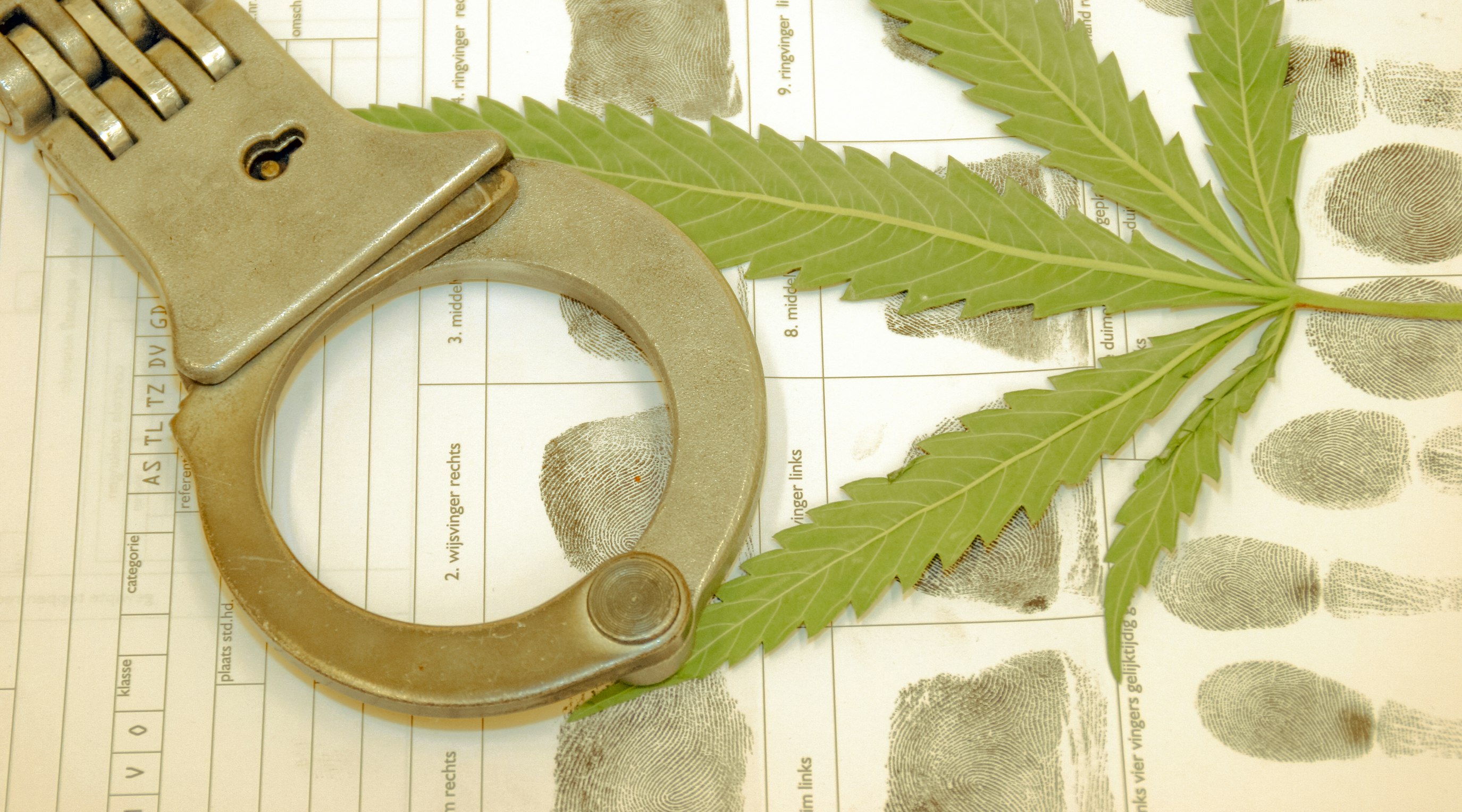Why is recreational cannabis illegal in the UK?
7 min read
Editorial Team
Contents
While we have seen some huge changes in the past five years regarding the legality of medical cannabis here in the UK, recreational cannabis remains strictly prohibited. The penalties for being caught with or supplying recreational cannabis can be severe, including fines and even potential jail time, or both.
With more than a handful of countries now legalising the use of recreational cannabis, and many looking at the plant as a potential revenue stream, it begs the question – why is recreational cannabis still illegal in the UK?
Here will have a deep look into both sides of the equation, exploring the current laws and regulations in place, as well as some of the potential reasons behind the UK's stance on recreational cannabis.
The history of cannabis in the UK
Cannabis has a long and complex history in the UK. Once a critical crop used for making rope and sails for the Royal British Navy, with its cultivation being required for all farmers working land of a certain size, cannabis eventually became illegal in the UK in 1928 through the Dangerous Drugs Act. At this time, there was no distinction between recreational and medical use of cannabis or even the differences between hemp (which carries almost zero THC) and cannabis varieties that produce the psychoactive effects commonly associated with the plant.'
And while it has been prohibited since 1928, it wasn't until the Misuse of Drugs Act was passed in 1971 that cannabis was classified as a Class B drug, alongside drugs like amphetamines and barbiturates.
The current laws and regulations
As mentioned, cannabis is still illegal for recreational use in the UK. This includes possession, cultivation, and supply of the drug. There has been a marked relaxation in the policing of these laws regarding personal use in recent years, with more leniencies being shown towards individuals caught with small amounts of the drug.
However, it is worth noting that penalties for possession or supply can still be severe. The maximum penalty for possession of cannabis is five years in prison and an unlimited fine, while supplying the drug can result in up to 14 years imprisonment and an unlimited fine.
The currently available data shows that these laws have also been implemented differently depending on factors such as age, race, and location. This has raised concerns about potential bias in the criminal justice system when it comes to drug offences.
The potential reasons behind the ban
There are a couple of key reasons that are often cited for the continued illegality of recreational cannabis in the UK.
Health concerns
The government's official stance emphasizes the potential health risks associated with cannabis, including mental health concerns, dependency, and product safety. Despite countless petitions and public awareness campaigns, the Home Office remains unwavering in its current policy. The government firmly believes that prohibiting cannabis is the most prudent approach to safeguarding individuals from potential harm.
There's also the argument that cannabis use could lead to dangerous behaviour or be a gateway to harder substances. This is part of the propaganda spread during the 20th century when cannabis was first made illegal, and has since been debunked by countless studies.
Political and social factors
Another major factor behind the continued ban could be political and societal pressure. With no major political parties in the UK openly supporting the legalisation of recreational cannabis, it can be challenging to push through any significant changes in the law.
Additionally, there is still a strong stigma surrounding cannabis use in the UK, with many viewing it as a harmful and dangerous drug. This stigma has been ingrained for decades and can be difficult to change even with mounting evidence of its potential therapeutic benefits.
Public safety
This one is a bit of a misnomer, as it has been shown (time and again) that simply prohibiting the legal use of a substance does not remove it from the market. The UK's current stance on recreational cannabis has pushed it into a black market, where safety and quality control standards are almost non-existent.
But, one of the main reasons behind the ban is that allowing recreational cannabis could create more drug-related offences and potentially increase crime rates. Many also argue that legalising recreational cannabis could encourage young people to use it, leading to potential health concerns. There is an abundance of evidence that this is simply not true, and that the illegal status of recreational cannabis has little impact on consumption rates.
By legalising, regulating, and taxing recreational cannabis, the government could actually address these concerns and potentially reduce drug-related offences and improve public safety. The rates of under-age cannabis consumption in countries or states that have legalised recreational cannabis have not significantly increased, and in some cases, have even decreased.
Political resistance
The government continues to assert that cannabis should remain prohibited under the MDA71. Despite annual petitions urging for wider access, decriminalization, or the right to cultivate at home, these requests are consistently denied, accompanied by a reaffirmation of the government's stance, and this comes from both sides of the political spectrum.
Advocates for cannabis legalisation UK argue that the initial prohibition lacked foundational evidence, further emphasizing that scientifically proven harmful substances like alcohol and tobacco should face similar scrutiny. They contend that if held to the same standard, these legal substances would warrant banning, while cannabis would not.
The government's Advisory Council on the Misuse of Drugs (ACMD) advised decriminalising cannabis in 2016. The Home Office made the decision to withhold this report, making it the only ACMD report that has never been released.
According to the ACMD, there is no international obligation for the UK government to criminalize individuals for using substances listed in UN drug conventions. It can be strongly argued that prosecuting individuals who use cannabis without a prescription may have more long-term harm on the individual.
The future of recreational cannabis in the UK
With the legalisation of medical cannabis happening in November 2018, and the shift in attitudes towards recreational cannabis, many are hopeful that the UK may eventually follow suit and legalise. However, it is unlikely to happen anytime soon.
The current conservative government has repeatedly stated that they have no plans to legalise recreational cannabis in the UK. They firmly believe that a prohibitionist approach is necessary to combat drug use and associated harms.
However, with an increasing number of countries and states legalising recreational cannabis, the UK may eventually have to reassess its stance on the issue. The potential economic benefits and improvements in public safety cannot be ignored forever. Until then, recreational cannabis remains illegal in the UK. But with continued advocacy and education about the potential benefits of legalisation, change may be on the horizon.
Releaf understands the importance of medical cannabis in treating various medical conditions. With our tailored monthly packages, specialist consultations for medical cannabis, and a unique medical cannabis card for protection, you can access the treatment you require without worrying about the stigma.
Share article
Did you like this article?
It is important to seek medical advice before starting any new treatments. The patient advisors at Releaf are available to provide expert advice and support. Alternatively, click here to book a consultation with one of our specialist doctors.
Elevate your wellness with medical cannabis
Get comprehensive care, convenience, and confidence with an all-in-one treatment plan.
Am I eligible?Authors
Editorial Team
Article written by the Releaf Editorial Team, a group of seasoned experts in cannabis healthcare, dedicated to enhancing awareness and accessibility in the field through their wealth of knowledge and experience.
meet our specialist
Editorial Policy
All of our articles are written by medical cannabis experts, guided by strict sourcing guidelines, and reference peer-reviewed studies and credible academic research. Our expert clinical team and compliance specialists provide valuable insights to ensure accuracy when required. Learn more in our editorial policy.
Need more help?











